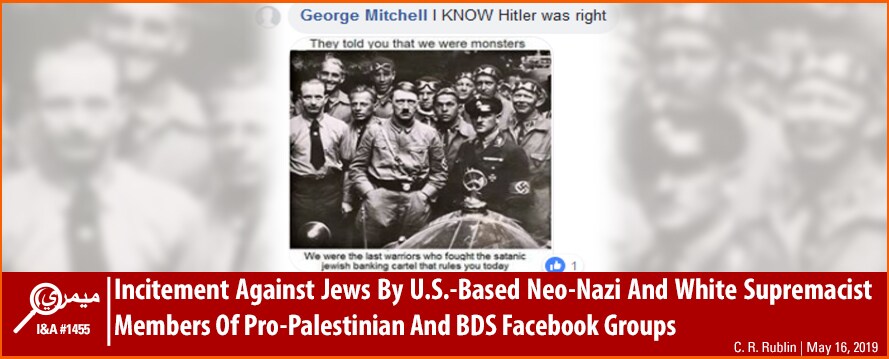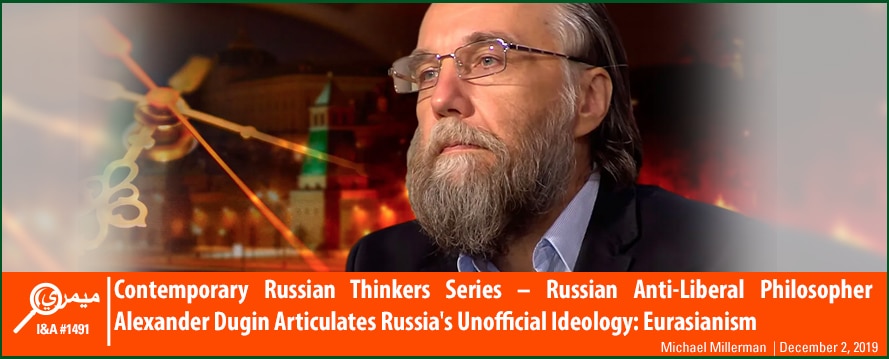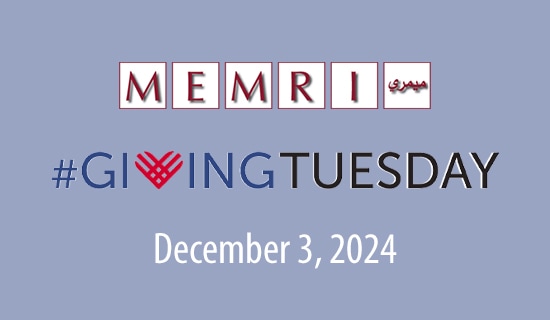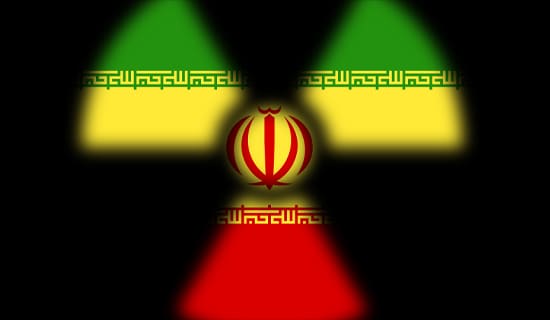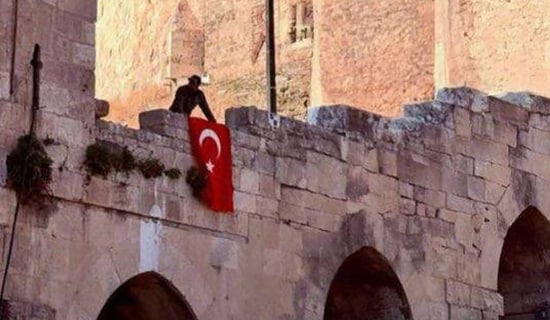The following are selections from the MEMRI Daily Brief series and the MEMRI Inquiry and Analysis series from 2019, by various MEMRI researchers and focused on a variety of topics.
The Future Is Hot: Whither The Middle East's Popular Revolts?
By: Alberto M. Fernandez
There is a famed literary work of the Mexican Revolution, Los de Abajo (translated as "The Underdogs" or "Those From Below") by Mariano Azuela, which tries to see the tectonic grand actions of that revolution from below, from the lives of ordinary and simple people buffeted by forces beyond their ken.
Turkey-Qatar Relations: From Bilateral Ties To A Comprehensive Strategic Partnership
By: Yigal Carmon, C. Meital
This report reviews the manifestations of the strategic cooperation between Qatar and Turkey, especially in the military domain.
The Coming Storm: Terrorists Using Cryptocurrency
By: Steven Stalinsky
As ISIS's Caliphate has crumbled, and as it and other jihadi and terrorist organizations increasingly depend on the Internet, the most significant and dangerous recent development in global terrorism is their embrace of cryptocurrencies to fund their activities. This has quietly become part of their cyber arsenal, and to date there has been a lack of understanding of how to stop it.
Turkey-Based Muslim Brotherhood TV Channels – An Emerging Hotbed Of Extremism, Jihadi Ideology, And Antisemitism
By: Yotam Feldner
Since the overthrow of the Muslim Brotherhood (MB) government of President Mohamed Morsi in Egypt in 2013, several TV channels affiliated with the Egyptian Muslim Brotherhood have started broadcasting from Turkey. Journalists, pundits, activists, and Islamic clerics who escaped the crackdown against the MB and its media outlets carried out by the regime of Egyptian President Abdel Fattah Al-Sisi have set up shop in Istanbul, where they operate freely under Turkish President Recep Tayyip Erdoğan and his MB-affiliated Justice and Development party (AKP).
Warm Encounter Between Arab League Secretary-General, Syrian Regime Representatives On Margins Of UNGA Reignites Speculation About Syria's Reinstatement In Arab League
By: O. Peri, Y. Yehoshua
Unexpectedly, on the margins of the 74th session of the UN General Assembly, Arab League secretary-general Ahmad Abu Al-Gheit approached the Syrian delegation, greeted Syrian Foreign Minister and Deputy Prime Minister Walid Al-Mu'allem and called him "brother," shook his hand and the hand of his deputy Faisal Al-Miqdad, kissed them both, and said he was happy to see them.
Even As UK, France Acknowledge That Iran Is Violating The JCPOA, The Trump Administration, After Ostensibly Withdrawing From It, Continues To Preserve It – By Means Of Its Waivers For Civilian Nuclear Cooperation With Iran
By: A. Savyon
On November 5, 2019, Iran announced that it was taking its fourth step to cut back on its obligations under the JCPOA nuclear agreement. This step includes reviving uranium enrichment at the Fordo nuclear facility and activating an array of advanced centrifuges that will enable it in future to double and triple its enrichment capability. In effect, Iran is systematically stripping the JCPOA of all meaning, ostensibly with the approval of the International Atomic Energy Agency (IAEA).
Indonesia's Growing Engagement With The Afghan Taliban
By: Tufail Ahmad
For more than a year, Indonesia, which is the largest Islamic country and is often overlooked due to the West's focus on the Arab world, has sought an international role, notably through mediation efforts involving the Islamic Emirate of Afghanistan, the Taliban organization that ruled Kabul from 1996 to 2001. This paper examines the recent trajectory of the relationship between Indonesia and the Afghan Taliban, not between Indonesia and Afghanistan.
Russia Has No Allies
By: Anna Mahjar-Barducci, Amiel Ungar
Official Russia insists that Russia, despite Western sanctions, is not isolated and enjoys a growing system of alliances. Russia's ties with Iran and Turkey have been showcased, and the recent sale of the S-400 air defense system to Turkey that opened a rift between Ankara and Washington has served as cause for exultation. With the collapse of the Soviet era arms control system, for example the mutual suspension of the INF treaty, Russian commentators have taken comfort in the thought that Russia is not facing the US alone, but its military power is augmented by China's economic and military power as part of a full-fledged military alliance.
Leading Salafi Jihadi Clerics Clash Over Fate Of Jihad In Syria
By: R. Green
In late September 2019, coinciding with the new Islamic year, two leading Salafi-jihadi clerics became embroiled in a heated debate online over the fate of jihad in Syria. Not too long ago they were considered ideological counterparts and personal friends, and both are seen as pillars of the radical, jihadi wing of the Salafi stream in Islam.
#İnstagramCihadı: A Review Of Turkish Jihadi Content On Instagram – Glorifying Martyrdom; Celebrating Terrorist Attacks In The West Including 9/11, Charlie Hebdo; Praising Jihadi Leaders – Bin Laden, Al-Zawahiri And Others – And Jihadi Groups – ISIS, Al-Qaeda, And More
By: A. Smith
Of Turkey's 80 million people, 38 million use Instagram – making Turkey the fifth highest Instagram user base in the world. In October 2016, İlke Çarkçı, who heads agencies and brands for Instagram's parent company Facebook in Turkey, said of Turkey's Instagram users that 47% were female and 53% were male; 41% of female users and 42% of male users were aged 18-24; and on average users had 87 followers and followed 115 accounts. Among those 38 million users are jihadis and jihadi sympathizers.
Incitement Against Jews By U.S.-Based Neo-Nazi And White Supremacist Members Of Pro-Palestinian And BDS Facebook Groups
By: C. R. Rublin
Many pro-Palestinian and BDS (Boycott, Divestment, Sanctions against Israel) groups maintain Facebook pages. These pages also serve as a platform for U.S.-based neo-Nazis and white supremacists, whose posts on them can include blatant incitement against Jews.
Houthi Schools, Summer Camps, And Children's Magazine Instill Hatred Of U.S., Israel, And Jews, Glorify Martyrdom And Jihad
By: B. Chernitsky
Since the Houthi Ansar Allah movement's 2015 takeover of Yemen's capital Sana'a and other parts of the country, the Houthis have adopted extremist curricula glorifying jihad and martyrdom and emphasizing hatred for the U.S., Israel, and the Jews. One method of indoctrination is inculcating the Houthi motto "Death to America, Death to Israel, Cursed be the Jews, Victory to Islam" in children attending schools and summer camps controlled by the Houthis. This motto is also promoted by the Houthi children's magazine Jihad.
The 'White Resistance Manual': A White Supremacist Ideological, Strategic, And Tactical Guidebook
By: Michael Davis
In the early 2000s a long and detailed document titled "White Resistance Manual" was published online. Of its 310 pages, 302 deal with tactical matters, and provide in-depth instructions for manufacturing, obtaining and using multiple types of weapons and explosives, to be used against public figures, institutions and private citizens who are considered "enemies of the White race." However, the document's first chapters serve as an ideological and strategic manifesto, exhibiting explicit anti-Jewish and racist ideology.
Due To U.S. Sanctions Against It And Against Its Sponsor Iran, Hizbullah Turns To Its Supporters For Aid
By: N. Mozes
"Again we need greater solidarity... The Resistance needs popular assistance. This [fundraising] activity must be stepped up." This March 8, 2019 appeal by Hizbullah Secretary-General Hassan Nasrallah to the organization's supporters to increase their donations is an indication of Hizbullah's economic straits since the U.S. has tightened sanctions on it and on its sponsor Iran.
In Arab Media, Increased Discussion Of Imminent Israel-Hizbullah War
By: H. Varulkar
In recent weeks, there has been an upsurge in discussion in the Arab media, particularly in the Lebanese and Syrian media, of the possibility of war this summer between Israel and Hizbullah, and perhaps even of war across the region. This is despite the fact that Hizbullah Secretary-General Hassan Nasrallah has reiterated that his organization is not anticipating a war in the near future and Lebanese President Michel Aoun also stated, on April 29, 2019, that war is not imminent.
Law Amendment Granting Citizenship To Investors Sparks Controversy In Egypt
By: Y. Graff
Suffering from an ongoing economic crisis, Egypt has recently taken an unusual step to attract foreign investments: a law amendment authorizing the government to grant Egyptian citizenship to foreign investors. This comes in the wake of a similar amendment to the citizenship laws – Law No. 89 (1960) and Law No. 26 (1975) – that was ratified by Egyptian President 'Abd Al-Fattah Al-Sisi a year ago, in August 2018.
Fatah-Hamas Schism Widens Further Following Ruling By Palestinian Authority Constitutional Court – Established By Palestinian Authority President 'Abbas – To Disband Palestinian Legislative Council
By: S. Schneidmann
Relations between Fatah, headed by Palestinian Authority (PA) President Mahmoud 'Abbas, and Hamas are now extremely tense, and the two organizations' positions have not been farther apart since the 2007 Hamas coup against the PA in Gaza. In recent weeks, the tension has become so great, and the schism between them so wide, that it appears that both sides – which, incidentally, both accuse the U.S. of striving, by means of the Deal of the Century, to create two separate Palestinian entities, in the Gaza Strip and the West Bank – are doing just that on their own, without any help from the U.S. Things have reached the point where each side is saying that the other no longer represents the Palestinian people, that it will never return to talks or reconciliation efforts, and that it will act to bring down the regime of the other.
Contemporary Russian Thinkers Series – Russian Anti-Liberal Philosopher Alexander Dugin Articulates Russia's Unofficial Ideology: Eurasianism
By: Michael Millerman
There are great powers on the world stage. But not all of them are ideological powers. The U.S., as the heart of the contemporary West, forms the ideological core of Western liberalism. Liberalism had pretensions to global hegemony after the collapse of the Soviet Union, when there were no other ideological competitors left standing. Today, however, there is a growing consensus that the unipolar moment has ended.












